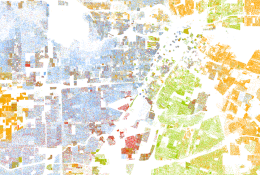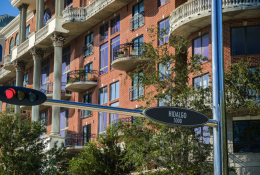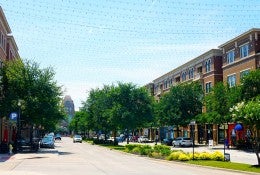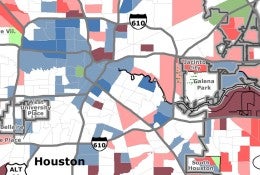America is more diverse than ever, but diversity doesn’t equal equality
In the time since the Immigration and Nationality Act was signed in 1965, the demographics of Houston have changed dramatically. In 1980, the city was 55% white, 28% Black and 17% Hispanic. Today, the population is 25% white, 22% Black, around 7% Asian and nearly 45% Hispanic. Despite Houston’s high level of diversity, the city’s neighborhoods are segregated to a large degree.





